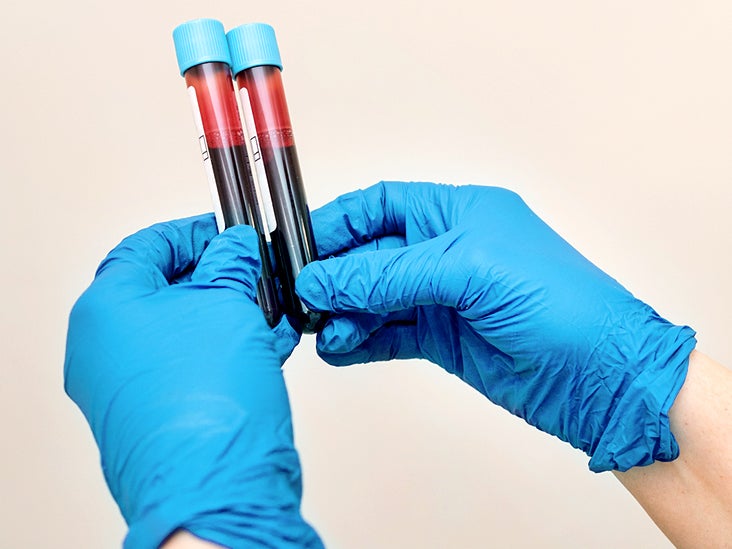Blood
High red blood cell count: What causes it?
A high red blood cell count can occur for many reasons, including excessive cell production, changes in blood volume, or underlying medical conditions. Sometimes, the cause is unknown.
Erythrocytes, or red blood cells (RBCs), help carry nutrients and gasses, such as oxygen, throughout the body.
When a person has more red blood cells than is typical, doctors call it polycythemia, or erythrocytosis. A high red blood cell count tends to be a symptom rather than a disease and can occur for many reasons. Usually, additional tests are necessary to determine the cause.
In infants, a temporary increase in red blood cells is normal. Still, a high red blood cell count in adults can increase the risk of dangerous blood clots.
Read on to learn more about what causes a high red blood cell count in children and adults.
Idiopathic polycythemia means doctors are unable to identify an underlying cause. Sometimes, this is a transient phenomenon, especially when RBCs are slightly elevated for no apparent reason and then return to normal. Still, red blood cell counts can remain elevated for longer without a clear cause.
An idiopathic cause accounts for about 70% of cases of erythrocytosis.
When the body overproduces RBCs, it is known as primary polycythemia. Doctors can determine whether a person has polycythemia by testing blood serum levels of erythropoietin (EPO) — a hormone that stimulates RBC production. Low EPO usually means polycythemia is primary.
The most common cause of this condition is polycythemia vera.
Polycythemia vera occurs when a person has a genetic mutation in cells of the bone marrow, where the body produces RBCs. Unlike many genetic mutations, this mutation is acquired, meaning it occurs after birth rather than being passed down from family members. In almost all cases, the defect is in the JAK2 gene.
Still, there is some evidence that a family history may be a risk factor for polycythemia vera. This suggests inheritable genetic factors may increase the risk of acquired genetic mutations leading to polycythemia vera.
People with polycythemia vera typically have very high red blood cell counts, not marginal increases in red blood cells. They also have elevated white blood cells or platelets.
Some other acquired and inherited genetic mutations — including others affecting the JAK2 gene — may also cause primary polycythemia.
Certain medical conditions can increase the RBC production. When this occurs alongside high EPO levels in the blood, doctors refer to it as secondary polycythemia.
Medical conditions that reduce oxygen in the blood are among the most common causes, since the body may respond by increasing RBC production.
Some common causes of secondary polycythemia include:
Some other conditions that less frequently cause polycythemia include:
- tumors that release EPO
- mutations in receptors for EPO
- shunts in the lungs
A reduction in the amount of fluid within the blood (or plasma) can lead to the appearance of a high red blood cell count.
One potential cause is a loss of fluids. This can happen when a person has severe dehydration. An underlying cause, such as vomiting or diarrhea, usually plays a role.
Below are some frequently asked questions on the topic:
What is the most common cause of high red blood cell count?
The most common causes vary depending on age and health. Lifestyle factors, such as smoking, may also play a role. Conditions that decrease blood oxygen are also common culprits.
Less commonly, a high red blood cell count can signal a genetic condition.
Should I worry if my red blood cell count is high?
Mild elevations in red blood cell count may be temporary, such as when a person is dehydrated. Doctors instead look at a person’s overall health, risk factors, and symptoms.
A person with persistently high red blood cell levels and other symptoms may have an underlying medical condition.
How does a person fix a high red blood cell count?
The treatment for a high red blood cell count can depend on the underlying cause. Replenishing lost fluids can help when a person has high red blood cells because of dehydration. A healthy lifestyle, including quitting smoking and maintaining a moderate weight, can also help.
Treatment varies widely with high red blood cell count due to underlying medical conditions.
Red blood cells distribute oxygen throughout the body. When their count is elevated, it can be a sign of low oxygen. It can also signal dehydration rather than an underlying disease. Sometimes, high red blood cell levels occur due to a rare genetic mutation.
Only a doctor can diagnose the cause. In doing so, they will ask about symptoms, test for other medical conditions, and take a detailed medical history. Providing clear and accurate information is essential to expedite getting an accurate diagnosis and quality treatment.

